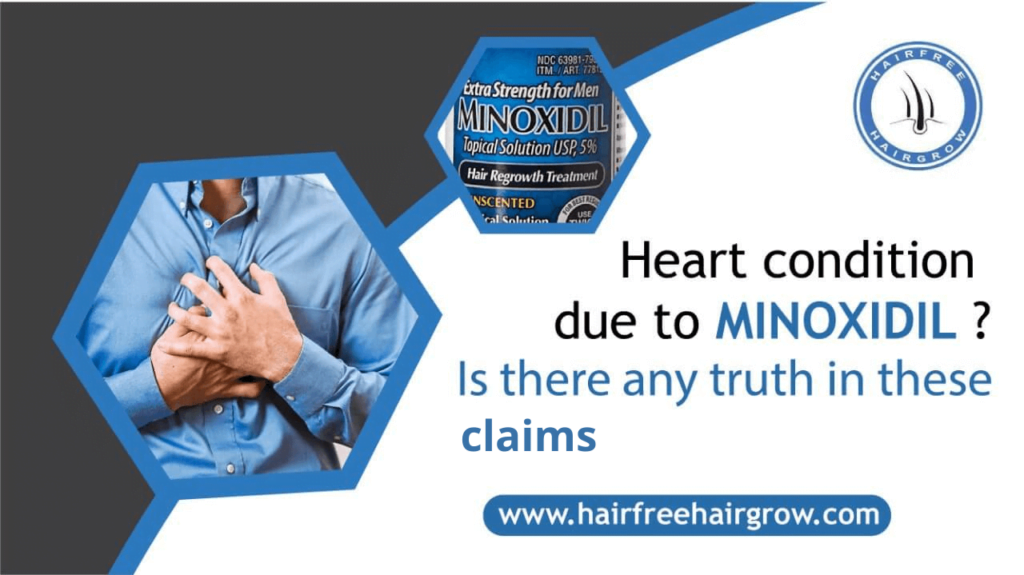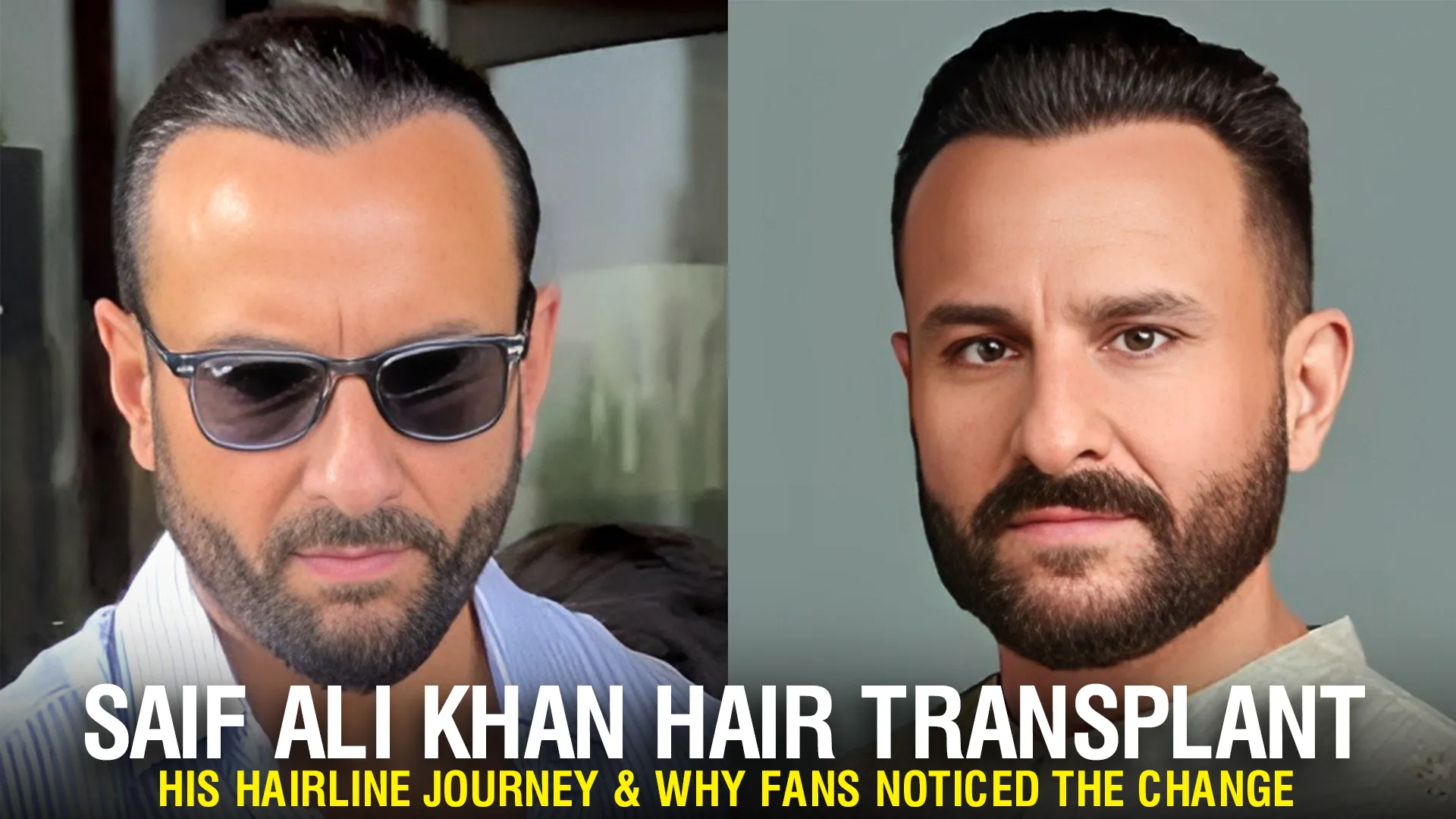Several times we heard our patients asks: “Doctor, is Rogaine (Minoxidil) causing me Heart Problems?” The pros and cons of Minoxidil for Hair Usage have been studied rigorously. New knowledge is always being generated, and although this has been asked several times, a clear answer isn’t available. There are multiple sides to this and we will try to see some of them here within this blog.
What Is Minoxidil?
Minoxidil can come in either tablet form or can be found as a topical ointment that can be applied directly on the head. Minoxidil is used for regrowth of hair and its usage has also grown into our everyday culture consciousness. It has been accepted widely and can be found in the list of medicines sold over the counter.
Typically, doctors prescribe minoxidil alongside a beta-adrenergic blocking drug and a diuretic (a pill that helps your body get rid of extra water). This combined approach helps lower blood pressure and lessen any unwanted effects from minoxidil.
Remember, it’s important to start minoxidil only when you’re being closely monitored by your doctor, either in their office or at the hospital.
Why Is It Used? Pros and Cons
Pros
- It helps in the increase of Hair by reversing Hair Loss. It helps to grow fallen hair and helps resolve Bald patches. This is the most important aspect of its use.
- It helps to decrease Hair Loss. We understand it helps in the growth of Hair, but the more important aspect of its usage is to stop Hair Loss. Hair Loss of any nature is stopped by it effectively.
- Rogaine is the best option in Hair Growth when compared to other oils or products which claim hair growth. Although the hair growth is slow, and it even takes months to see some average results with Minoxidil it is still better than all the other products.
Now The Cons:
- Hair Growth will be way too slow.
- Results will not be even 10% of the Best Hair Transplant.
- Bad application can cause hair growth in unwanted areas.
- Can lead to Heart Palpitations.
How It Works?
The exact mechanism by which minoxidil works to promote hair growth is not fully understood. However, it is thought to work by increasing blood flow to the scalp and stimulating hair follicles to grow.
Minoxidil may also work by dilating blood vessels, which can help to increase the delivery of nutrients and oxygen to the hair follicles.
It is important to note that minoxidil is not a cure for hair loss. It can help to slow down the hair loss process and promote new hair growth, but it will not restore all lost hair. Minoxidil for hair loss can help you regrow hair easily.
Minoxidil is also not effective for all types of hair loss. For example, it is not effective for hair loss caused by scarring or chemotherapy.
The Alleged Connection: Minoxidil and Heart Conditions
Heart conditions are the leading cause of Death in the world. In India every day they cause thousands of people to perish. Our hearts have become weaker at a pace that can be compared to our lifestyles. There has been a growth in Heart complaints in young adults under 40 and this can cause a life to shorten.
Rogaine or Minoxidil in tablet form has been shown to increase heart rate and increase Blood pressure. But the tablet form’s usage has significantly decreased in comparison to the topical solution. This solution is to be applied directly on the scalp, in the amount prescribed by the Doctor. Overuse or spilling can cause hair growth in unwanted areas. But overuse can also lead to even serious heart diseases.
The Research Behind Minoxidil and Heart Health
Research on minoxidil and heart health is ongoing, but some studies have suggested that the medication may have both positive and negative effects on the heart.
On the positive side, minoxidil has been shown to improve blood vessel function and reduce arterial stiffness. This can help to improve blood flow to the heart and other organs. Additionally, minoxidil has been shown to lower blood pressure, which can reduce the risk of heart attack and stroke.
On the negative side, some studies have linked minoxidil to an increased risk of fluid retention and edema. This can be a problem for people with heart failure, as it can lead to worsening symptoms. Additionally, minoxidil can increase heart rate, which can also be a problem for people with heart conditions.
It is important to note that the majority of research on minoxidil and heart health has been conducted on people taking oral minoxidil for high blood pressure. Topical minoxidil, which is used to treat hair loss, is absorbed into the bloodstream in much smaller amounts. As a result, the risk of minoxidil side effects is lower with topical minoxidil.
Overall, the research on minoxidil and heart health is mixed. More research is needed to determine the long-term effects of minoxidil on the heart, especially for people with existing heart conditions.
A 2021 study published in the journal Circulation Research found that minoxidil improved blood vessel function and reduced arterial stiffness in mice with high blood pressure.
If you are considering using minoxidil, it is important to talk to your doctor first. They can help you determine if the medication is right for you and monitor your heart health while you are taking it.
Debunking The Myths: Expert Insights
There are a number of myths and misconceptions about minoxidil and heart conditions. Here are some expert insights on debunking some of the most common ones:
Myth 1: Minoxidil is a Blood Pressure Medication
Fact: Minoxidil is a vasodilator, which means it widens blood vessels. This can lower blood pressure, but minoxidil is not typically used as a first-line treatment for high blood pressure. It is more commonly used to treat severe high blood pressure that has not responded to other medications.
Myth 2: Minoxidil Can Cause Heart Problems
Fact: Minoxidil can cause a number of side effects, including fluid retention, edema, and increased heart rate. However, there is no evidence that minoxidil causes heart problems such as heart attack or stroke. In fact, some studies have shown that minoxidil may improve blood vessel function and reduce the risk of heart problems.
Myth 3: People with Heart Conditions Cannot Use Minoxidil
Fact: People with heart conditions can use minoxidil, but they should be monitored closely by their doctor. Minoxidil can worsen fluid retention and edema in people with heart failure, so it is important to monitor fluid levels and weight gain.
Myth 4: Topical Minoxidil is Safe for People with Heart Conditions
Fact: Topical minoxidil, which is used to treat hair loss, is absorbed into the bloodstream in much smaller amounts than oral minoxidil, which is used to treat high blood pressure. However, topical minoxidil can still cause side effects in people with heart conditions, so it is important to talk to your doctor before using it.
Guidelines For Safe Usage of Minoxidil
All of this makes it sound that Minoxidil has no side effects and is good for Hair regain, but therein lies the problem. It is made for the general public, but not everyone can use it without checking the label. All of the medicines, even ayurvedic ones can or might affect someone negatively. This phenomenon is known worldwide but still we wouldn’t expect oneself to get literal Life threatening conditions from usage of Hair Growth products, but this is a possibility.
It’s important to use minoxidil safely and effectively to achieve the desired results and minimize potential side effects. Here are some guidelines for the safe usage of minoxidil:
- Follow your doctor’s instructions carefully.
- Do not use minoxidil more often or in higher amounts than directed.
- Apply minoxidil only to the scalp. Do not apply it to other areas of the body like nose or face.
- Wash your hands thoroughly after applying minoxidil.
- Do not use minoxidil if your scalp is irritated, sunburned, or broken.
- Stop using minoxidil if you experience any side effects, such as scalp irritation, itching.
- Choose the right formulation. Minoxidil is available in both liquid and foam formulations.
- Apply minoxidil to dry hair and scalp. Minoxidil will not be absorbed as well on wet scalp.
- Wait at least 4 hours after applying minoxidil before washing your hair.
- Keep minoxidil out of reach of children and pets.
It is also important to monitor yourself for side effects while using minoxidil. Some common minoxidil side effects include:
- Irritation and dryness of the scalp
- Unwanted hair growth on the face and other parts of the body
- Headaches
- Lightheadedness
- Dizziness
- Changes in heart rate and blood pressure
If you experience any of these side effects, talk to your doctor. They may be able to adjust your dosage or recommend a different medication.
Conclusion
In conclusion, while concerns about Minoxidil and its potential impact on heart health have been raised, scientific evidence supporting a direct link between Minoxidil, used as directed for hair loss, and heart conditions is limited.
Heart disease is no joke, and it is to be feared. Thus even if you have a slither of doubt in your heart, that your heart might not be working effectively, call a doctor.
Never ignore your heart or your hair. But don’t risk life for hair. Hair is very important but so is a good life.
Choose Hair Transplant, the safest possible way for the best Results in Hair Growth. Don’t stop yourself because of the price. You might be doing more harm than hair growth!
Be aware and beware always. Just come to Hairfree Hairgrow and leave the doubts of Hair Loss with us, while you go with the best results!
- Hairfree Hairgrow is one of best hair transplant clinic in India, Currenly branches at Hyderabad, Surat, Pune, Kolkata, Gurugram, Ahmedabad, Kolkata, Bhopal, and Mumbai.
- Visit your nearest branch or Call us on: +91-7272832222
FAQs
1. Can minoxidil cause heart problems?
There is no definitive answer to this question, as the research on minoxidil and heart health is mixed. Some studies have shown that minoxidil may increase the risk of fluid retention and edema, which can worsen symptoms in people with heart failure. Other studies have shown that minoxidil may improve blood vessel function and reduce the risk of heart problems.
2. Should I use minoxidil if I have a heart condition?
If you have a heart condition, it is important to talk to your doctor before using minoxidil. They can help you determine if the medication is right for you and monitor your heart health while you are taking it.
3. Are there any alternatives to Minoxidil for hair loss?
Yes, there are alternative treatments for hair loss, including prescription medications and procedures like hair transplant surgery. Consult a healthcare professional to determine the best option for your specific situation.
4. How long does it take to see results from Minoxidil?
Results from using Minoxidil for hair loss may vary from person to person. It typically takes a few months to notice significant changes, and consistent use is key to achieving desired results.
5. Is Minoxidil safe for long-term use?
When used as directed for hair loss, Minoxidil is generally considered safe for long-term use. However, it’s essential to follow the prescribed guidelines and consult your healthcare provider if you have any concerns.
6. What other medications can be used to treat hair loss in people with heart conditions?
There are a number of other medications that can be used to treat hair loss in people with heart conditions. Some of these medications include finasteride (Propecia) and dutasteride (Avodart). These medications work by blocking the conversion of testosterone to dihydrotestosterone (DHT), which is a hormone that contributes to hair loss.
7. What are some lifestyle changes that can help to prevent hair loss?
You should follow many lifestyle changes that can help to prevent hair loss, including:
– Eating a healthy diet
– Exercising regularly
– Managing stress
– Avoiding smoking
– Protecting your hair from the sun




